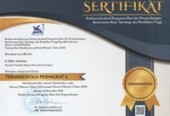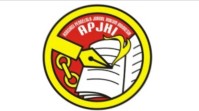Criminal Legal Protection for Bona Fide Third Parties Over Assets in Corruption and Money Laundering Cases
Abstract
Criminal law in Indonesia has yet to guarantee justice and human rights of bona fide (good faith) third parties in protecting their confiscated assets in corruption and money laundering cases. Criminal procedural law is inadequate in providing assessments for bona fide third parties. Therefore, Economics and Anthropology are needed in the investigation stage up to the evidentiary stage during trials. In this research, the main problems are formulated as follows: (1) what is the concept, definition, and scope of the assets of third parties in good faith in the laws and regulations in Indonesia? (2) how is the application of legal provisions regarding the protection of third parties with good intentions in corruption and money laundering? (3) what is the ideal role of the Public Prosecutor and Judge in protecting the property of a third party with good intentions in the criminal justice system? Normative law research conducted in this article showed that (1) the concept and understanding of bona fide third parties in civil law can be adopted in criminal law; (2) the application of legal protection to bona fide third parties over their assets in corruption and money laundering cases still depends on the moral goodness of law enforcement officials; and (3) investigators, prosecutors, and judges play an important role in protecting the human rights of bona fide third parties in corruption and money laundering cases.
Keywords
Full Text:
PDFReferences
REFERENCES
Adi, Rianto. Social and Legal Research Methodology. Jakarta: Granit, 2010.
Ariyati, Ika, and Suwarjo. Advances in Social Science, Education and Humanities Research, 3rd International Conference on Learning Innovation and Quality Education, 2019.
Asimow, Michel, and Shannon Mader. Law and Popular Culture. A Course Book. New York: Peter Lang, 2004.
Barnett, Randy E. The Structure of Liberty. Justice and the Rule of Law. United Kingdom: Oxford University of Press., 1998.
Brems, Eva. Human Rights: Universality and Diversity. Oxford (UK: Oxford University Press, 2001.
Carl, Schmitt, Hans Kelsen, and Hermann Heller. Legality & Legitimacy. Paper-Work Collection. Without publisher., 1974.
Doc, UN. “General Comment No. 31 (80).” Human Rights Committee, n.d.
Fried, Charles. Contract as Promise. Cambridge (US): Harvard University Press, 1981.
Hamzah, Andi. Legal Dictionary. Jakarta: Ghalia, 1986.
Harlina, Indah. “Position and Authority of the Corruption Eradication Commission in Law Enforcement.,” 2008.
Husein, Yunus. The Land of Money Launders. Jakarta: Pustaka Juanda Tigalima, 2008.
Kempen, P.H.P.H.M.C. van. Criminal Law and Human Rights. Surrey & Burlington (UK): Ashgate Publishing Limited, 2014.
Khairandy, Ridwan. Good Faith in Freedom of Contract. Jakarta: Program Pasca Sarjana Fakultas Hukum Universitas Indonesia, 2014.
Marzuki, Peter Mahmud. Legal research, 2nd Edition. Jakarta: Kencana Prenada Media Group, 2008.
Mochtar, Akil. “Application of Reversal of the Load of Proof in Eradicating Corruption in Indonesia.” Faculty of Law. Padjajaran University, 2012.
Muhammad, Abdulkadir. Law and Legal Research. 1st Printing. Bandung: Citra Aditya Abadi Bakti, 2011.
Nowak, Manfred. Introduction to the International Human Rights Regime. Martinus Nijhoff Publishers, 2005.
Posner, Richard A. The Cost of Accidents: A Legal and Economic Analysis. University of Chicago Law Review, 1970.
Prodjohamidjojo, Martiman. Application of Reversed Evidence in Corruption Offenses. Bandung: Mandar Maju, 2001.
Rawls, John. A Theory of Justice. Revised Edition. Massachusetts (US): Belknap Press of Harvard University of Press., 1999.
Reksodiputro, Mardjono. “Human Rights in the Criminal Justice System.” In Compilation of Essays, Third Book, Jakarta: Center for Justice and Legal Services, University of Indonesia, 2007.
Rifai, Eddy. “Analysis of the Role of the Attorney General’s Office in Eradicating Corruption. Studies on the Integral Approach of Criminal Policies to Eradicate Corruption in the Legal Territory of the Lampung High Court,” Faculty of Law, University of Indonesia, 2002.
Sitoempoel, Hotma P.D. “Implementation of Assets Recovery in Corruption Crime Cases According to Indonesian Criminal and Civil Law.” Faculty of Law, Gadjah Mada University, 2016.
Soetarna, Hendar. “Application of Conditional Crime in Corruption Crime.” Faculty of Law, Airlangga University, 2004.
DOI: http://dx.doi.org/10.28946/slrev.Vol8.Iss1.2159.pp171-182
Refbacks
- There are currently no refbacks.

Sriwijaya Law Review (SLRev) ISSN: 2541-5298 | e-ISSN: 2541-6464 is licensed under a Creative Commons Attribution-ShareAlike 4.0 International License.






















